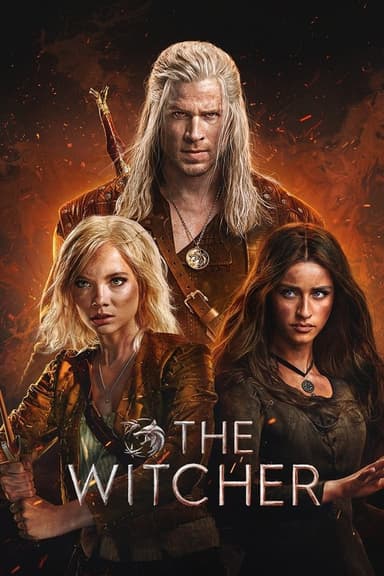
Firestarter: Rekindled
2002 • Action & Adventure, Sci-Fi & Fantasy
A young woman who has the ability to start fires with her mind, must now face the trauma of her childhood by battling with a group of very talented children and their cruel leader, John Rainbird.
Why you should read the novel
Stephen King's 'Firestarter' presents an extraordinary journey into the power of parental love and the terrible consequences of secret government experiments. Through vivid prose and gripping suspense, King draws readers deep into the struggles of Charlie and Andy McGee, a father and daughter on the run. The novel’s intricate character development and moral complexity make it an essential read for those who crave compelling psychological drama.
While the television adaptation offers a brief glimpse into Charlie's world, the novel immerses readers fully in her emotional landscape and the haunting ramifications of her abilities. The slow-burning tension and detailed backstories provide context and depth rarely captured in screen adaptations. By reading the novel, you experience the internal conflicts, ethical dilemmas, and pervasive fear far more intimately than any on-screen portrayal can provide.
If you seek a story that challenges your imagination and explores the consequences of unchecked power, turn to the original work. Let Stephen King’s narrative skill and chilling atmosphere envelop you, and discover why 'Firestarter' remains a standout thriller in his prolific career. The book rewards every reader with a nuanced tale that lingers long after the final page.
Adaptation differences
One of the primary differences between 'Firestarter: Rekindled' and Stephen King’s novel is the timeline and scope of the story. The TV miniseries functions as a sequel, exploring Charlie McGee’s adulthood years after the original events. In contrast, the book focuses entirely on young Charlie and her father as they escape from The Shop, delving into their immediate fight for survival and the implications of Charlie’s growing powers. This shift leads to new characters and subplots invented for the miniseries, diverting greatly from the source material’s tight narrative.
Another significant difference is the treatment of Charlie’s abilities and her character development. In King’s book, Charlie struggles to control and understand her powers, her internal turmoil serving as a cornerstone of the plot. The adaptation expands her abilities for dramatic effect and depicts her as a more confident, almost superhero-like figure. This lessens the raw vulnerability and ambiguity that King wove into her story, transforming the narrative into a more conventional action drama rather than a psychological thriller.
The government agency known as The Shop is portrayed with noticeable differences. In the novel, The Shop’s methods and motivations are layered with paranoia and bureaucratic menace, presenting morally ambiguous antagonists with chilling realism. The TV series introduces new antagonists, such as Rainbird and other enhanced experiment survivors, injecting fresh conflict but diluting the focused threat posed in King’s original.
Finally, the adaptation’s resolution diverges from the book’s open-ended, tense conclusion. Whereas Stephen King leaves the fate of Charlie and her father ambiguous and the potential for her story to continue, the miniseries chooses to wrap up storylines in a more definitive, action-packed manner. In doing so, it sacrifices the lingering sense of dread and possibility that make the novel so memorable, offering closure at the expense of complexity.
Firestarter: Rekindled inspired from
Firestarter
by Stephen King


















